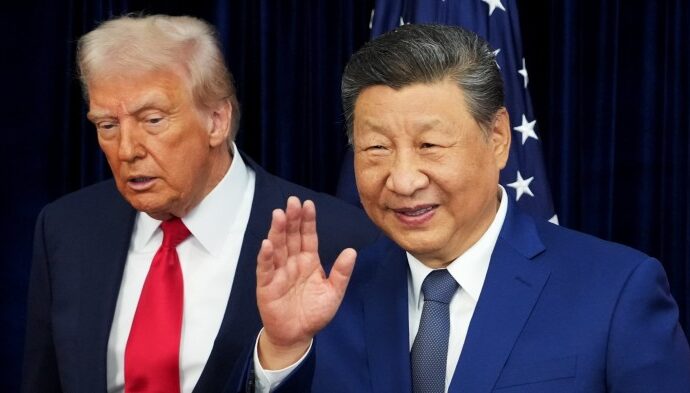
Receive free Chinese business & finance updates
We’ll send you a myFT Daily Digest email rounding up the latest Chinese business & finance news every morning.
Retail investors with exposure to Chinese conglomerate Zhongzhi sought to lodge formal complaints with authorities in Beijing on Wednesday in a sign of growing alarm over a liquidity crisis across the group’s many businesses.
Zhongzhi, a sprawling financial enterprise with an estimated Rmb1tn ($137bn) under management, is at the centre of fears that a property and wider economic slowdown in China is now feeding through into the country’s vast and highly opaque savings industry.
Last week, Zhongrong, an investment company partly owned by Zhongzhi, missed payments on several products, according to disclosures from listed companies, prompting investors to question other Shanghai and Shenzhen-listed businesses on their exposure.
Meanwhile, Zhongzhi’s wealth management businesses missed payments on products over recent weeks, according to multiple retail investors who spoke to the Financial Times.
The crisis has come at a critical moment for Beijing, which is grappling with a two-year liquidity crisis in its property sector that is now showing signs of rippling over into a shadow banking sector that includes both trust and wealth management businesses.
Ting Lu, chief China economist at Nomura, suggested this week that “markets still underestimate the aftermath of the significant collapse in China’s property sector” in a note that referred to both Country Garden, a private developer that also missed bond payments last week, and the issues at Zhongzhi.
Multiple police vehicles were parked outside China’s National Administration of Financial Regulation (NAFR), the revamped banking and insurance watchdog, on Wednesday afternoon.
Police took one group of creditors to a nearby bench after denying them entry. More than a dozen officers formed a human chain around them screening them off from the rest of the city.
Several small groups of creditors, who had come to deliver a letter to the regulator’s consumer protection arm, milled about nearby, wary of the heavy police presence. “I’ve already been here twice and haven’t made any progress,” said one woman who declined to give her name.
The creditor complaints are just one part of the fallout from Zhongzhi’s woes. In early August, its headquarters in Beijing was also surrounded by police as investors discussed how to “resolve” its issues with management inside. They declined to provide further details.
Two retail investors who attended meetings at the Beijing headquarters told the Financial Times that a representative for Zhongrong said three out of four of Zhongzhi’s wealth management companies missed payments in June. They said the person added that Zhongzhi’s exposure included listed companies, real estate projects, debts and other real estate assets in third- and fourth-tier cities.
The Chinese government faces disappointing economic data ranging from slowing exports to rising youth unemployment, which the government this week said it would stop reporting weeks after it hit a record high.
The NAFR did not immediately reply to an emailed request for comment. Zhongzhi did not immediately reply to a request for comment regarding the complaints.


